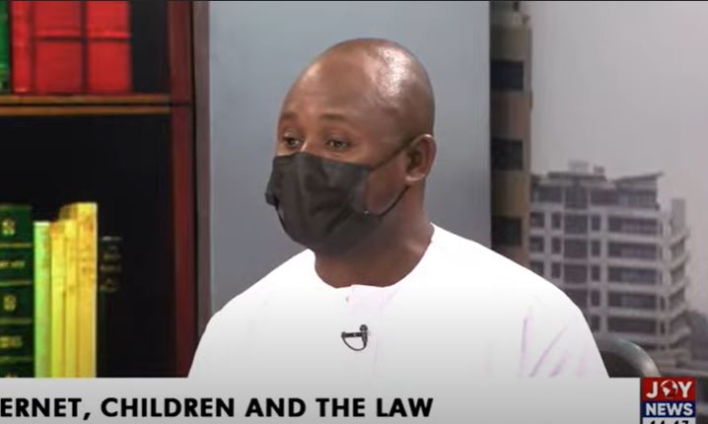Lead Capacity Building and Awareness Creation Department of the Cybersecurity Authority, Alex Oppong, has warned of the increasing risk of anonymity on the internet in recent times.
Speaking on The Law on Sunday, he urged parents to put in more effort to ensure the safety of their wards when they are surfing through the internet due to the anonymity the internet provides.
“One of the things that all of us will be aware of is the fact that what the internet does provide for everyone in terms of its use is anonymity.
“So someone can be sitting behind the computer, be chatting with a child. The person sitting could be 30 or 40 years but pretend to be a 13-year-old,” he said whiles giving a possible situation.
According to him, those ‘internet stalkers’ engage children to gather information about “what children like, the kind of things that would allow them to continue the conversation that they’ve already started.”
Mr Oppong stated that these stalker behaviours, from the perspective of Cyber Security when investigating crime, show the intent to commit a specific type of crime.
He added that “when the investigation goes through, and it’s found that the person is guilty, there able to face the law to its fullness if possible.”
He cited an instance of gaming. He said: “A lot of gaming communities, children are not aware who they are playing with, and they are also talking to, and probably because the person is an adult, they are good at the game, and they would start with things like I can show you few tricks to get more points for your avatar.”
He stated that “Those conversations would draw the child to the particular member of the gaming community that they fall within”, therefore the need for parents to keep a watchful eye on their children.
Meanwhile, the Cybersecurity Act, 2020 (Act 1038) states that “a person shall not use an online computer service, an internet service, or a local internet bulletin board service or any other electronic device to compile, transmit, publish, reproduce, buy, sell, receive, exchange, or disseminate the name, telephone number, electronic mail address, residence address, picture, physical description, characteristics, or any other identifying information on a child in furtherance of an effort to arrange a meeting with the child for the purpose of engaging in sexual intercourse, sexually explicit conduct, or unlawful sexual activity."
It continues to add that any person who goes against this provision “commits an offence and is liable on summary conviction to a term of imprisonment of not less than five years and not more than 15 years.”
Latest Stories
-
PPA Clarification: The dark side of the World Bank’s ‘giveaways’ in Ghana by Bright Simons
18 mins -
Blinken says China helping fuel Russian threat to Ukraine
1 hour -
MHA declares May as Purple Month for Mental Health Awareness
1 hour -
WAEC arrests former headmaster over illegal students registration
1 hour -
MeToo founder Tarana Burke defiant after Harvey Weinstein ruling
2 hours -
Be alert, insist on decent messages – Dwumfour tells media
2 hours -
Father jailed 10 years for burning daughter’s genitals with hot cutlasses
2 hours -
I aim to help Ghana produce world-class athletes – Asamoah Gyan
2 hours -
Ashanti Regional Minister alleges sabotage in electricity supply
2 hours -
2024 Elections: Dampare urges Ghanaians to prioritise patriotism and display maturity
3 hours -
‘Let it rot’ campaign hits fish prices in Egypt
3 hours -
Otumfuo chalks 25 years on Golden Stool today
3 hours -
Saudi could get first Miss Universe contestant this year
3 hours -
Ghana Shippers’ Authority initiates steps to sign Service Level Agreements with stakeholders
3 hours -
Fuse ODG supports rising artiste, Fred Kobby, with funds for music video
3 hours

